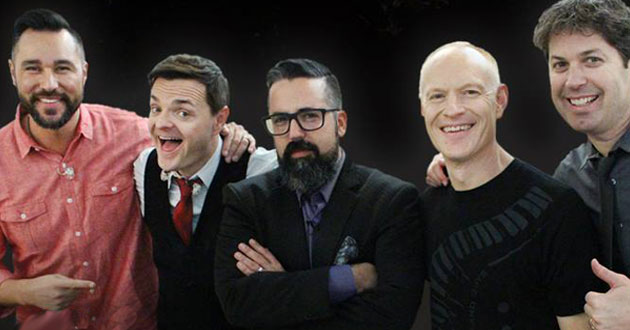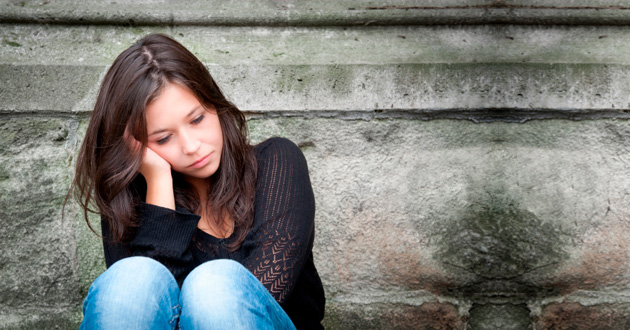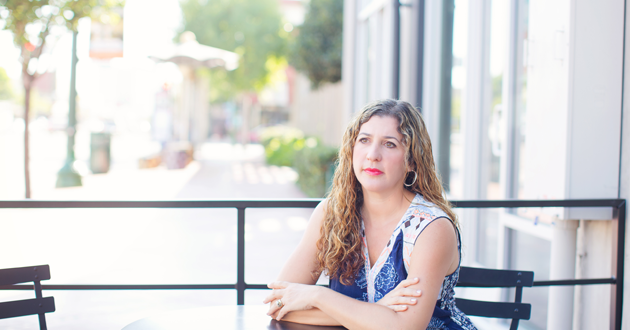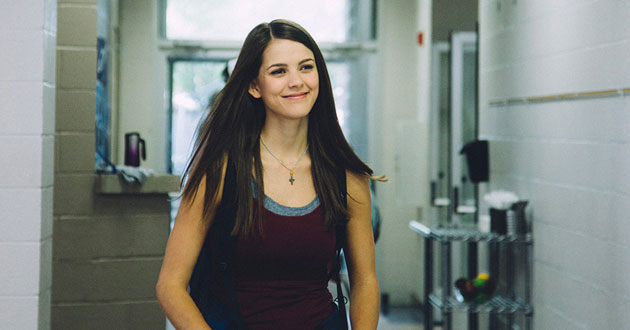Taking shots | Emotions run strong in vaccine debate
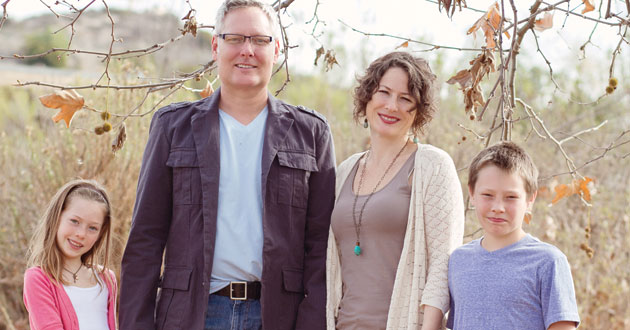
Just like any new mom, Mary Miller educated herself on the ABC’s of childbirth and rearing, wading through often conflicting information in books, periodicals, and the World Wide Web. She listened to trusted friends, and got plenty of unsolicited advice, she prayed, read her Bible and soul-searched. The confusion over best approaches only seemed to magnify when the baby alphabet took her to the letter “V.”
“There wasn’t enough research, but a number of prominent voices in the anti-vaccine field were absolutely convinced that vaccines were tied to autism and I simply did not feel safe,” she said.
Miller is not alone.
According to the California Department of Health, just 90.4 percent of public school children received all of their required immunizations for the 2014-15 school year, while the rate for private schools was even lower, at 87.3 percent.
While 90 percent is enough to earn an “A” in any classroom, proponents of childhood vaccinations say the state’s rate is dangerous because of a phenomenon called “herd immunity.” The concept, embraced by the Centers for Disease Control, means that by immunizing as many children as possible, those who cannot take the vaccines because of serious medical conditions will be protected against outbreaks. Medical experts and the CDC recommend vaccination rates of at least 92 percent to maintain the sought-after herd immunity.
Although the debate over immunizations has percolated for decades— peaking with a now-debunked 1998 British study linking vaccines to autism—a recent outbreak of at least 140 measles cases tied to Disneyland and a new proposal to eliminate California’s longstanding personal belief exemption for the shots has fueled increased angst on both sides.
. . .
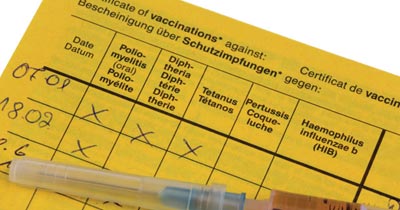 When Miller’s son, Ian, arrived in 2003, many parents were leaning on a study authored five years earlier by British researcher Andrew Wakefield, who concluded there was a direct correlation between autism and the combined measles, mumps and rubella vaccine. The study, though later proven to be fraudulent, instilled panic as parents opted to forgo the widely accepted health protocol. With the findings disputed and Wakefield accused of manipulating the data for financial gain, the journal that published the study retracted it and the UK medical register stripped him of his license to practice medicine.
When Miller’s son, Ian, arrived in 2003, many parents were leaning on a study authored five years earlier by British researcher Andrew Wakefield, who concluded there was a direct correlation between autism and the combined measles, mumps and rubella vaccine. The study, though later proven to be fraudulent, instilled panic as parents opted to forgo the widely accepted health protocol. With the findings disputed and Wakefield accused of manipulating the data for financial gain, the journal that published the study retracted it and the UK medical register stripped him of his license to practice medicine.
But those who question the mandated use of vaccinations argue that the same can be said for research supporting the use of vaccinations. In his documentary “Bought,” producer Jeff Hayes discusses the lack of independent research and oversight in connection with vaccine development.
Dr. Tami Meraglia, who has an integrative and natural medicine practice in Seattle, said in the documentary that more needs to be done to protect the integrity of the development process.
“Medications, including vaccinations, are not all bad, but they’re not all good,” she said. “We need to bring up questions. We need to have science and data be the focus and get the money people out of the conversation.”
As a concerned mom, Miller agrees.
“This is a billion dollar industry and I kept thinking to myself, ‘If vaccines really work, for the good of the public why don’t they provide them free or at much more affordable rates?’” the Santee resident said. “If this was a ‘public service’ they wouldn’t be making insane amounts of money. There’s a huge profit here. I’m always leery of anything that’s being pushed upon the American people when it’s for profit for somebody else.”
As with many Americans, immunization costs were an issue for Miller and her husband, Mark, the pastor of a small congregation. When their second child, Julianna, was born in 2006, they had no health insurance and opted for a home birth.
“We had no way of paying for vaccines and she was home with us and I certainly felt like she wasn’t in any kind of a risk category and I decided not to vaccinate her,” Miller said.
When Ian began home-schooling a couple of years later, the Millers had him immunized.
“He did the vaccines, but he did them on my time table,” she said. “I am still profoundly uncomfortable with the idea of loading an infant with vaccines.
“I have also read about too many children who went in and overnight had severe reactions to the vaccines after what amounted to, like, 12 shots in one day.”
. . .
Dr. Brian A. Stenzler, a Pacific Beach chiropractor who serves as president of the California Chiropractic Association, said that California’s current vaccine schedule requires that children take 69 vaccine doses before their 18th birthday—49 of them required by age 6.
“Parents should be told of the benefits of vaccination, while also being provided an accurate presentation of the risks, which include a myriad of potential side effects, including death,” Stenzler said, adding that his organization takes no formal position on the use of vaccinations. “Many of our members choose to vaccinate their children and many choose not to vaccinate.
“Chiropractic is the largest drug-free healthcare profession in the country and as such, attracts people to become doctors of chiropractic who are typically more holistically oriented and prefer to avoid drugs and surgery for themselves and their families whenever possible.”
Despite frequent depictions that those who opt out of the vaccine protocols are naïve, uneducated or living on the fringe, Stenzler said chiropractors and their patients who make that choice do so out of deeply held beliefs in the body’s “inborn ability to heal and regulate naturally, all the while keeping their immune system functioning at the highest possible level.
“They often choose to live a proactive lifestyle consistent with building strong immune systems naturally which includes (but is not limited to) proper diet, exercise, relaxation, positive thinking, prayer, meditation and keeping their nervous system functioning optimally; rather than remain passive and ‘hope’ not to be stricken with illness,” said Stenzler, whose Dream Wellness practice also operates an office in Del Mar.
. . .
While the chiropractic industry may be divided on the issue, traditional medicine is not. Those in public health circles and most private practice physicians believe strongly that failing to comply with the vaccine schedules is not only dangerous to young patients, it’s also perilous to the wider community.
The recent Disneyland outbreak, traced to an unvaccinated child visiting from overseas, is a good example of how a once-eradicated disease can come roaring back.
Dr. Wayne True, who specializes in family medicine through the Sharp Rees-Stealy Medical Group, said his confidence in the safety and efficacy of vaccinations was formulated by his disease prevention work while earning a master’s degree in public health studies at the University of Michigan.
His views, he said, are also shaped by his own personal experience.
“When I was in fourth grade, a measles epidemic swept our school,” True said. “One of my best friends had measles encephalitis, was never quite the same after the infection. In our school district there was at least one death from measles.”
The disease, he said, was halted several years later after the immunizations were made available to the public.
True was further convinced while doing medical work in Haiti, where neonatal tetanus resulted in mortality rates of 50 percent. The infant deaths there stopped with the implementation of immunizations and training programs that taught midwives to use sterile razors to cut the umbilical cord and to tie them with sterile shoelaces. Because of those advances, True was able to help a woman through a successful pregnancy after losing 10 previous children to the disease, each dying within two weeks of birth.
“(It) made the efforts all worthwhile,” he said.
While much of True’s practice centers on the science of medicine, the physician said that as a practicing Christian his personal faith also plays a role in how he approaches healing.
“Through sin, death and disease entered in to the world,” he said. “This includes the childhood diseases. It seemed right to me to use any of the modern medical advancements to prevent these illnesses. This seemed to be a blessing from God, that we could prevent some measure of disease and suffering in the world.”
. . .
Although the link to autism has been disproved, there are still serious risks associated with the vaccines, many of which include trace amounts of mercury, aluminum, formaldehyde, antibiotics, eggs and MSG. The Internet is rife with testimonies from parents whose children have experienced vaccine injury.
In 1986 Congress passed the National Childhood Vaccine Injury Act in an effort to stabilize the country’s vaccine program after juries began awarding large monetary damages for vaccine injury. As a result of the act, the government established the Vaccine Injury Compensation Program, which pays expenses and reparations to families whose children have been harmed or killed by vaccines. More than $2.8 billion has been paid out by the fund to date.
Among those receiving compensation were the parents of Porter Bridges, a now 20-year-old who suffers from autism and severe seizures resulting from a pertussis vaccination when he was just four months old. In the “Bought” documentary, his mother, Sarah Bridges, said medical costs associated with his care have topped $2.1 million. After fighting the government for seven years the family finally reached a settlement.
Stenzler said compensation payouts from the fund demonstrate a real risk when taking vaccines.
“The feeling is, if there is risk, there should be a choice,” he said.
True said although he once believed that all vaccines were good, he understands that some may be problematic with certain patients, something he witnessed first-hand in treating one of his teen patients.
“There is more data today on folks who react adversely to the trace amounts of preservatives, or some ingredient used in manufacturing,” he said, adding that patients should seek out preservative-free shots when possible.
According to the teen’s mother, the young man responded to his childhood immunizations with extreme fever, marked behavior change, and then arrested mental development.
“The family chose not to immunize any more after the age 6-month shots,” True said. “But by then the damage seems to have been done. He seems to have suffered the most severe type of reaction to the immunizations.”
. . .
Last year, Miller reluctantly immunized her daughter, now 8, with several basic vaccines. As with Ian, it was an immensely difficult decision made even tougher with her own diagnosis two years ago of multiple sclerosis, an auto-immune disease that is highly reactionary to food and other environmental factors.
“One of the reasons that propelled me to vaccinate Julianna were all the illegal immigrants who were crossing the border,” she said. “Some diseases that were extinct in the United States at one time are crossing the border now. We are seeing an upswing in this.”
She also struggles with the decision on whether she will have Julianna take her follow-up shots since her daughter battled high fevers for two days after the injections.
Despite pressure from her neurologist to take the standard minimally effective medicine for her MS, Miller, already an advocate of healthy eating, opted instead for a more holistic approach.
“I began to research the adulteration of our food supply,” she said. “I am in complete remission through a healing diet. How much of our corrupted food supply, coupled with overloaded toxins in our bodies, leads to some of the neurological conditions parents believe are caused by vaccines? I don’t know.”
She does know, however, that there are no simple answers, and that each parent needs to decide what works best for them, although she personally believes that children should not be immunized until they are at least six months old.
“While I wouldn’t identify as pro-vaccine, I also do not claim to be anti-vaccine,” she said. “You could call me an independent. I believe more solid, nonsensational research needs to be presented where parents can make an informed choice. I respect my friends who have chosen either path.
“I understand why the vaccine companies are trying to push this because they believe many people are not informed and educated and this is true,” she said. “There are people who make wild-hair decisions regarding their kids. But America is the great melting pot. We have people from all races, ethnicities, religions, cultural backgrounds and we have given people freedom to make their own decisions.”
Her true heart is that the dialogue will become more civil and people will stop demonizing the other side, whichever one that may be.
“It’s really challenging to swim upstream and to hold your belief and be willing to defend your belief in the face of ridicule and opposition,” she said.
• Related article: Who should choose? Bill would eliminate parental opt-out option

